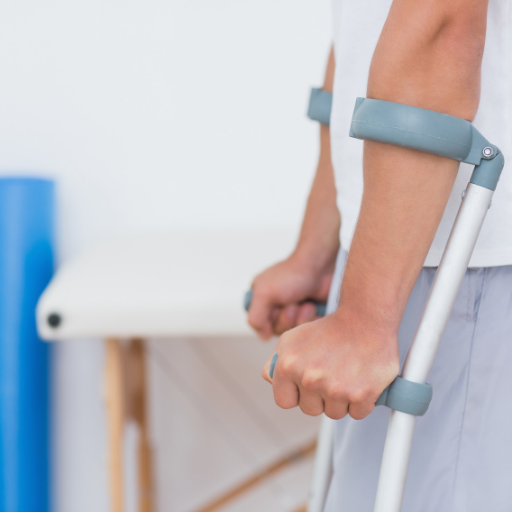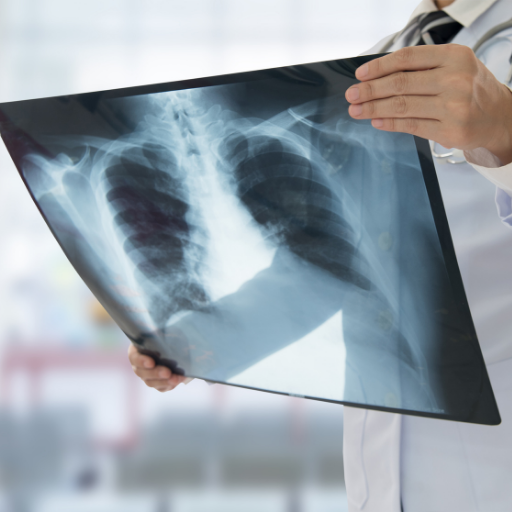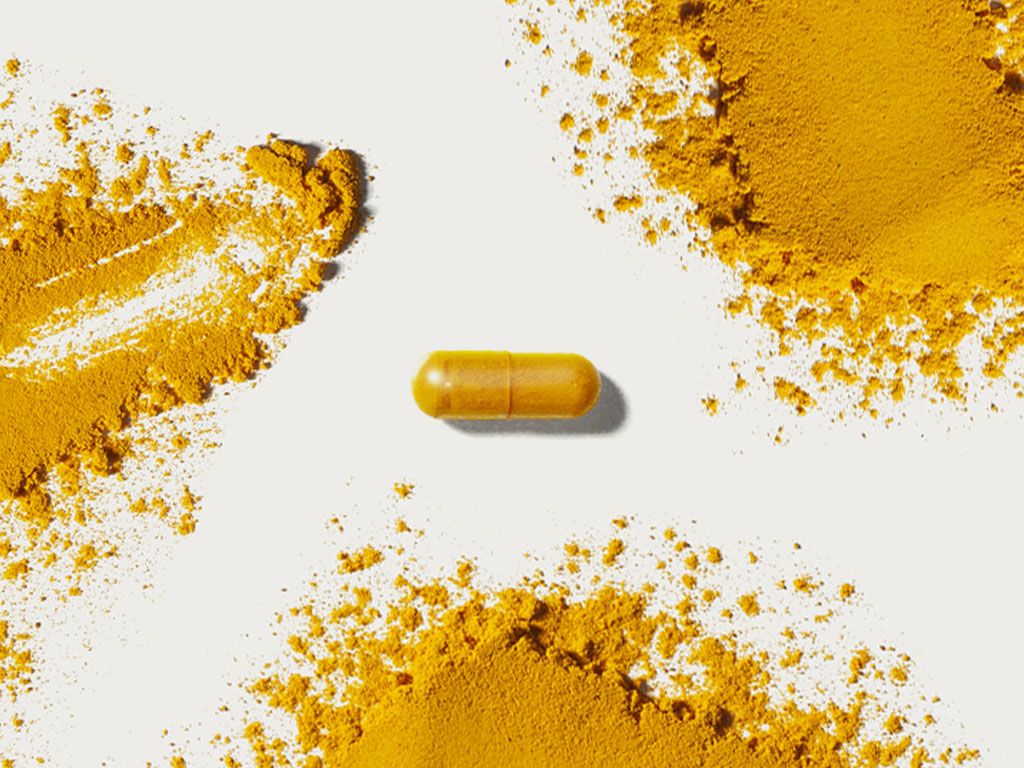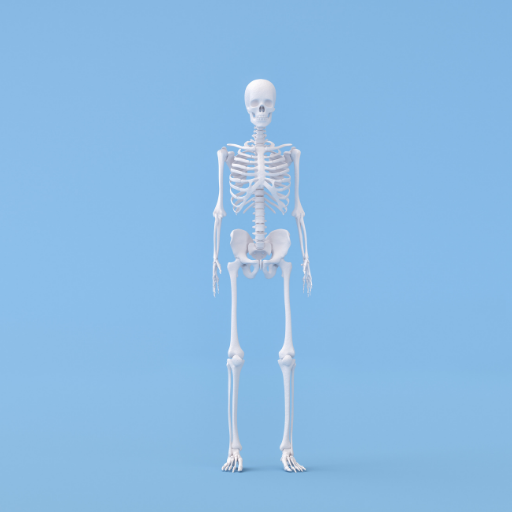Wellness Blog
The content on this blog is for general informational purposes only and is not a substitute for professional medical advice, diagnosis, or treatment. Always consult your healthcare provider before making changes to your health routine or taking new supplements.
Why we need calcium for healthy bones
It's so important to keep our bones strong as we get older. The skeletal system plays the two important roles of allowing the human body to maintain balance during movement, and protecting our vital organs like the brain. Suffering with poor bone health can potentially lead to injuries or ailments that could prevent you from doing regular physical activities that are commonly taken for granted like walking, or even chewing.Here's how to keep your bones strong and healthy at any age.Calcium for healthy bonesCalcium supports bone health, integrity, and strength. It is one of the key minerals, alongside phosphorus, that is stored in our bones and keeps them strong (1). Because of the importance of bone health, calcium has become an essential nutrient required as part of a healthy, balanced diet.Calcium is important to the body, not just for bone health but also in promoting healthy muscle and nerve function. It also helps in blood clotting. When the body needs calcium to sustain these vital functions, it borrows the mineral from the bones (2). This underscores the importance of replenishing calcium in the body. Calcium deficiency occurs when the blood fails to deliver ample amounts of calcium to regenerate the bone's reserve, leading to poor bone health.Poor bone health: Why we need calcium for healthy bonesOur bones need to constantly receive calcium to maintain a certain level of bone density. In the infant up to pre-adolescent stages, the body primarily channels calcium to the bones, to allow for a more rapid bone growth and development. Upon reaching the adult stage, the body ceases to form new bone, as it reaches its peak bone density (3). During the more advanced ages of 50 and above, bone loss starts to occur and this is when bone complications may manifest.People with calcium deficiency may experience brittle bones (4) which are more susceptible to breaking. Brittle bones increase the risk of low impact fractures that can arise from normal physical activities (5). What would otherwise be a minor injury could become a more serious fracture.How to maintain healthy bonesWeight-bearing exercises like walking or jogging, especially at an early age, help promote stronger bones. Resistance exercises like weight lifting can also strengthen bones (6).A balanced diet, especially one with sufficient amounts of calcium, also helps support strong bones.Calcium can be found in a variety of foods (7), including: Dairy products including milk, cheese and yoghurt. Dark green leafy vegetables, including broccoli. Fish with edible soft bones, like sardines and canned salmon. Calcium-fortified foods and drinks Do I need calcium supplements?The required amount of calcium for healthy bones can differ depending on your age, sex or specific conditions.According to the National Institute of Health, women between 19 and 50 years of age are recommended to take 1,000mg a day, while men are recommended to take 1,000mg a day (8).However, not everyone can get the necessary amount of calcium from their diet. People with certain diet restrictions may find themselves calcium deficient. Common examples of these include: People who eat predominantly plant-based or vegan diets. People who are lactose intolerant and need to limit dairy product intake. People who consume large amounts of protein or sodium, which can cause your body to excrete more calcium. People receiving long-term treatment with corticosteroids. People who have certain bowel or digestive diseases that decrease the ability to absorb calcium, such as inflammatory bowel disease or celiac disease (9) Because of these lifestyle or nutritional factors, calcium supplements may be considered to support nutrient intake.The role of Vitamin DBesides taking calcium for healthy bones, you might also consider taking vitamin D. Vitamin D is a fat soluble vitamin that is essential for better absorption of calcium in the body (10).The digestive system can struggle to absorb calcium, with most people absorbing only 15% to 20% of the calcium they eat in their diet. This can be caused by a range of factors that include taking medication, dietary restrictions, and certain medical issues. Vitamin D is the nutrient that helps them absorb more calcium (11).Calcium Plus by Vitable Australia is manufactured in Australia and goes through stringent testing throughout the whole supply chain, and is tested for purity and stability. It is non-GMO, vegetarian and vegan-friendly and free from added lactose and gluten. It is also enriched with vegan vitamin D3 to increase calcium absorption in the body. The pair work together to not only support bone strength and repair, but also muscle function.Whatever age, sex or kind of diet restriction, it is important to consider bone health. Try adding calcium to your monthly vitamin subscription with Vitable. Put together your own pack of personalised supplements and make use of our vitamin delivery process to have your personal packs brought right to your doorstep.*Always read the label. Follow the directions for use. If symptoms persist, talk to your health professional. Vitamin and/or mineral supplements should not replace a balanced diet.References: NIH Osteoporosis and Related Bone Diseases National Resource Center. Bone Health for Life: Health Information Basics for You and Your Family. Published on https://www.bones.nih.gov/health-info/bone/bone-health/bone-health-life-health-information-basics-you-and-your-family. Accessed October 24, 2021. Pravina Piste, Didwagh Sayaji, and Mokashi Avinash. International Journal of Research in Pharmaceutical and Biomedical Sciences. Published June 2013 on https://www.academia.edu/5820121/Calcium_and_its_Role_in_Human_Body. Accessed October 24, 2021. OrthoInfo. Healthy Bones at Every Age. Published on https://orthoinfo.aaos.org/en/staying-healthy/healthy-bones-at-every-age/. Accessed Oct 24, 2021. Cleveland Clinic. Osteoporosis: Prevention With Calcium Treatment. Published on https://my.clevelandclinic.org/health/articles/15049-osteoporosis-prevention-with-calcium-treatment. Accessed Oct 24, 2021. Versus Arthritis. Osteoporosis. Published on https://www.versusarthritis.org/about-arthritis/conditions/osteoporosis/. Accessed Oct 24, 2021. NIH Osteoporosis and Related Bone Diseases National Resource Center. Oral Health and Bone Disease. Published on https://www.bones.nih.gov/health-info/bone/bone-health/oral-health/oral-health-and-bone-disease. Accessed October 24, 2021. Mayo Clinic. Calcium and calcium supplements: Achieving the right balance. Published on https://www.mayoclinic.org/healthy-lifestyle/nutrition-and-healthy-eating/in-depth/calcium-supplements/art-20047097. Accessed Oct 24, 2021. NIH Osteoporosis and Related Bone Diseases National Resource Center. Calcium. Published on https://ods.od.nih.gov/factsheets/Calcium-HealthProfessional/. Accessed Oct 24, 2021. Mayo Clinic. Calcium and calcium supplements: Achieving the right balance. Published on https://www.mayoclinic.org/healthy-lifestyle/nutrition-and-healthy-eating/in-depth/calcium-supplements/art-20047097. Accessed Oct 24, 2021. Stephen B. Weinmann. Vitamin D and its Effect Upon Periodontal Surgery and Periodontal Disease. Published on https://www.academia.edu/26533478/Vitamin_D_and_its_Effect?from=cover_page. Accessed Oct 24, 2021.11. Medline Plus. Calcium and bones. Published on https://medlineplus.gov/ency/article/002062.htm. Accessed Oct 24, 2021.
Learn moreThe top 5 daily vitamins for bone health
Surprisingly, in Australia most self-reported incidents of injured or broken bones have been from those under 75 years of age (2). This statistic underlines the importance of taking care of your bone health as early as possible.Bones, alongside muscles and joints, provide structure to the body and support bodily movement (1). They also protect internal organs from external forces. Bone marrow, which is found inside the bones, contains cells that produce red and white blood cells.You can get a headstart on caring for your bones by exercising regularly and through proper nutrition as well as a well-balanced diet. Daily supplements can also assist in providing additional nutrients for the body to maintain and support bone health when paired alongside a healthy diet.With that, here are some tips you can put into practice when assembling daily vitamins for healthy bones.Know the nutrients that support bone healthBy knowing how nutrients interact with the body, it can be easier to understand which can help support and maintain bone health. Some of the nutrients to add to your daily vitamins to keep the bones stronger are magnesium, calcium, vitamin C and D, and cranberry.MagnesiumMagnesium is essential for muscles, nerves, blood sugar regulation, and for bones to function properly. It also supports bone health by playing a role in the structural development of bones (3).More than half of magnesium in the body is found in the bones (4). Magnesium is particularly important in keeping bone density high, especially among older women who are more prone to bone-related conditions. Having a higher bone density reduces the risk of such injuries as well as illnesses (6, 7).CalciumAs the most abundant mineral in the body, calcium is found mostly in the bones and teeth. It's also important for bone structure, cell signaling, stabilisation of protein, and enzymes for different bodily functions (8).It supports and maintains bone health and strength through bone remodeling that helps in bone growth, damage repair, and sustains serum calcium levels (9).Higher consumption of calcium can help to maintain bone density, which reduces the possibility of bone injuries and illnesses, especially among older people (10, 11).Vitamin CVitamin C is an essential nutrient that is mostly sourced through food as the body is not able to produce it (12). It's used for the synthesis of collagen as well as other enzymes and is also known as an antioxidant that prevents cell damage (13).Supplementation with vitamin C can help maintain bone health though the prevention of bone loss (14). A study also shows that through supplementation, patients have been seen with significantly faster bone healing compared to patients without vitamin C supplements (15). It's also connected closely to collagen where their link enables bones to be stronger when vitamin C intake is increased (16).Vitamin DVitamin D is popularly known for being sourced from the body's reaction with sunlight. It helps calcium through absorption and maintenance of serum calcium and phosphate levels for normal bone mineralisation (17). It's also important for bone growth and repair, and also prevents bone weakness and brittleness with the help of calcium (17).Like most bone health nutrients, vitamin D increases bone mineral density which reduces the risk of weak bones in later life (17). It also prevents bone injury by making bones stronger and its effects on muscle function (18). Vitamin D deficiency can impact the formation of bone structure and shape as there's very little of it to regulate calcium and phosphate (19).CranberryFruits are a refreshing way to introduce nutrients in the body. Cranberries are a good source of both vitamin C and calcium which support bone health through bone healing (20). Its vitamin C content helps in preventing bone loss (14), while calcium aids in lowering the risk of osteoporosis (11). Cranberry can also be consumed in supplement form where it supports bone health by maintaining bone mineralisation.Find food sources of those nutrientsWhere possible, it is always best to maintain your intake of vitamins and nutrients through dietary choices. Aside from supplementation, knowing which food sources can help you achieve your recommended daily intake of nutrients is very beneficial. Here are some top food sources for nutrients that can help support bone health:MagnesiumMagnesium is mostly found in seeds and nuts such as chia seeds, almonds, cashews, and pumpkin seeds. It can also be sourced from grains, beans, and cereals through oatmeal, black beans, rice, and bread. The Australian National Health and Medical Research Council recommends at least 400 mg/day of magnesium for grown adults (21).CalciumSome of the foods that contain calcium are daily products such as milk, cheese, and dairy (22). Other foods like cranberry, sardines, and tuna with bones, tofu and soybeans, and spinach are also great high-calcium food options. The Australian National Health and Medical Research Council recommends 1,000 mg/day of calcium for Australians to consume (22).Vitamin CFruits and vegetables can be good sources of vitamin C, including oranges, grapefruit, kiwi, and berries like cranberries, and vegetables like broccoli, spinach, and brussels sprouts.The Australian National Health and Medical Research Council recommends at least 45 mg/day of vitamin C is included in a normal diet (23).Vitamin DAs little as 5 micrograms a day of vitamin D is what is recommended for intake (24). Adequate vitamin D levels can be obtained through appropriate and healthy sun exposure, although overexposure to sunlight can be harmful to your skin. There are food sources of vitamin D including fatty fish like salmon, tuna, and mackerel. Fortified milk and cereals can also be good sources of vitamin D.Know what your body needsThe body lets you know if it lacks certain nutrients for it to function. Signs like fatigue and weight loss can be indicators of a nutrient shortfall (25). If you experience any of these symptoms, it is best to speak with your healthcare practitioner to determine which vitamins you need, how you can improve bone health as well as ensure you do not have a more serious health condition.Create your own vitamin packOnce you understand which vitamins and minerals are needed to support bone health, the next step is to incorporate them into your diet or consider supplementation. Food sources are still the best but for instances where the recommended daily intake cannot be met, supplements can support your daily intake of nutrients to support bone health.Vitable has made crafting your own daily vitamins easier with its custom vitamin packs. You can choose from a selection of vitamins that not only supports your bone health but other areas of health. It is the preferred create-your-own vitamin subscriptions in Australia that offers a wide selection of minerals to fit your lifestyle. We'll even have your vitamin packs delivered right to your doorstep with our vitamin delivery services!Find out more about other areas that the above supplements can help you with:Magnesium | Calcium | Vitamin C | Vitamin D*Always read the label. Follow the directions for use. If symptoms persist, talk to your health professional. Vitamin and/or mineral supplements should not replace a balanced diet.References: "Bones". Better Health Channel. Published on https://www.betterhealth.vic.gov.au/health/conditionsandtreatments/bones. Accessed Oct. 26, 2021 "Osteoporosis". Australian Institute of Health and Welfare. Published Mar. 15, 2021 on https://www.aihw.gov.au/reports/chronic-musculoskeletal-conditions/osteoporosis/contents/what-is-osteoporosis. Accessed Oct. 26, 2021 “Magnesium”, National Institute of Health: Office of Dietary Supplements. Published on https://ods.od.nih.gov/factsheets/Magnesium-HealthProfessional/. Accessed Oct. 26, 2021 Gröber, U., Schmidt, J., and Kisters, K. “Magnesium in Prevention and Therapy”. Nutrients. Published Sep. 23, 2015 on https://www.mdpi.com/2072-6643/7/9/5388. Accessed Oct. 26, 2021 Tucker K. "Osteoporosis prevention and nutrition". Current osteoporosis reports. Published Dec. 2009 on https://link.springer.com/article/10.1007%2Fs11914-009-0020-5. Accessed Oct. 26, 2021 Mahdavi-Roshan, M., Ebrahimi, M., and Ebrahimi, A. "Copper, magnesium, zinc and calcium status in osteopenic and osteoporotic post-menopausal women". Clinical cases in mineral and bone metabolism : the official journal of the Italian Society of Osteoporosis, Mineral Metabolism, and Skeletal Diseases. Published Jun. 1, 2015 on https://dx.doi.org/10.11138%2Fccmbm%2F2015.12.1.018. Accessed Oct. 26, 2021 “Magnesium”, National Institute of Health: Office of Dietary Supplements. Published on https://ods.od.nih.gov/factsheets/Magnesium-Consumer/. Accessed Oct. 26, 2021 Higdon, J., Drake, V., Delage, B., and Weaver, C. “Calcium”. Oregon State University: Linus Pauling Institute. Published Dec. 2018 on https://lpi.oregonstate.edu/mic/minerals/calcium. Accessed Oct. 26, 2021 “Calcium”, National Institute of Health: Office of Dietary Supplements. Published on https://ods.od.nih.gov/factsheets/Calcium-HealthProfessional/. Accessed Oct. 26, 2021 Dawson-Hughes, B., Harris, S., Krall, E., and Dallal, G. "Effect of calcium and vitamin D supplementation on bone density in men and women 65 years of age or older". The New England Journal of medicine. Published Sep. 4, 1997 on https://www.nejm.org/doi/full/10.1056/NEJM199709043371003. Accessed Oct. 26, 2021 "Osteoporosis". Better Health Channel. Published on https://www.betterhealth.vic.gov.au/health/conditionsandtreatments/osteoporosis. Accessed Oct. 26, 2021 Higdon, J., Drake, V., Delage, B., Angelo, A., Carr, A. and Michaels, A. “Vitamin C”. Oregon State University: Linus Pauling Institute. Published Dec. 2018 on https://lpi.oregonstate.edu/mic/vitamins/vitamin-C. Accessed Oct. 26, 2021 “Vitamin C”, National Institute of Health: Office of Dietary Supplements. Published on https://ods.od.nih.gov/factsheets/VitaminC-HealthProfessional/. Accessed Oct. 26, 2021 Chin, K. and Ima-Nirwana, S. "Vitamin C and Bone Health: Evidence from Cell, Animal and Human Studies". Current drug targets. Published 2018 on https://www.eurekaselect.com/134717/article. Accessed Oct. 26, 2021 DePhillipo, N., Aman, Z., Kennedy, M., Begley, J., Moatshe, G. and LaPrade, R. "Efficacy of Vitamin C Supplementation on Collagen Synthesis and Oxidative Stress After Musculoskeletal Injuries: A Systematic Review". Orthopaedic journal of sports medicine. Published Oct. 2018 on https://journals.sagepub.com/doi/10.1177/2325967118804544. Accessed Oct. 26, 2021 Viguet-Carrin, S., Garnero, P., and Delmas, P. "The role of collagen in bone strength". Osteoporosis international. Published Dec. 2005 on https://link.springer.com/article/10.1007%2Fs00198-005-2035-9. Accessed Oct. 26, 2021 “Vitamin D”, National Institute of Health: Office of Dietary Supplements. Published on https://ods.od.nih.gov/factsheets/VitaminD-HealthProfessional/. Accessed Oct. 26, 2021 Laird, E., Ward, M., McSorley, E., Strain, J. and Wallace, J. “Vitamin D and bone health: potential mechanisms”. Nutrients. Published Jul. 5, 2010 on https://www.mdpi.com/2072-6643/2/7/693. Accessed Oct. 26, 2021 Higdon, J., Drake, V., Delage, B., and Gombart, A. “Vitamin D”. Oregon State University: Linus Pauling Institute. Published Oct. 2017 on https://lpi.oregonstate.edu/mic/vitamins/vitamin-D. Accessed Oct. 26, 2021 DePhillipo, N., Aman, Z., Kennedy, M., Begley, J., Moatshe, G., and LaPrade, R. "Efficacy of Vitamin C Supplementation on Collagen Synthesis and Oxidative Stress After Musculoskeletal Injuries: A Systematic Review". Orthopaedic journal of sports medicine. Published Oct. 2018 on https://journals.sagepub.com/doi/10.1177/2325967118804544. Accessed Oct. 26, 2021 "Magnesium". Australian National Health and Medical Research Council: Nutrient Reference Values. Published Sep. 22, 2017 on https://www.nrv.gov.au/nutrients/magnesium. Accessed Oct. 26, 2021 "Calcium". Australian National Health and Medical Research Council: Nutrient Reference Values. Published Sep. 9, 2014 on https://www.nrv.gov.au/nutrients/calcium. Accessed Oct. 26, 2021 "Vitamin C". Australian National Health and Medical Research Council: Nutrient Reference Values. Published Sep. 9, 2014 on https://www.nrv.gov.au/nutrients/vitamin-c. Accessed Oct. 26, 2021 "Vitamin D". Australian National Health and Medical Research Council: Nutrient Reference Values. Published Sep. 9, 2014 on https://www.nrv.gov.au/nutrients/vitamin-d. Accessed Oct. 26, 2021 "Malnutrition". National Health Services. Published Feb. 7, 2021 on https://www.nhs.uk/conditions/malnutrition/. Accessed Oct. 26, 2021
Learn moreImproving bone health with curcumin
Our skeletal system plays the two important roles of allowing the human body to maintain balance during movement, and protecting our vital organs like the brain. It is important for survival that our body has the ability to carry itself and perform physical tasks like walking, running or even chewing our food. But like any well-oiled machine, wear and tear can create complications in our bodies, including our bones and joints. That is why it is really important to maintain our bone and joint health, especially during our advanced ages when joint-related diseases like arthritis can appear. One way of doing this is by taking curcumin for mild arthritis and other joint issues. Let's get to know the ailment and the role of curcumin in keeping it at bay.Mild arthritis and its symptomsThe condition known as arthritis is a household term that most of us are familiar with. It is the swelling and tenderness of one or more joints (1). Typically we feel this through pain and/or stiffness in our joints. It can be caused by chronic overuse of certain joints, but most of the time it is caused by old age. Common symptoms are: Pain Stiffness Swelling Redness Decreased range of motion What is osteoarthritisThere are different forms of arthritis but the most common form is osteoarthritis, affecting millions of people around the world. It occurs when the protective cartilage that cushions the ends of the bones wears down over time (2). Although this form of arthritis can affect any joint, the most commonly affected ones are: Hands Knees Hips Spine The damage to the cartilage causes the typical symptoms of arthritis (i.e. pain, stiffness, tenderness, loss of movement, bone spurs, and swelling). The symptoms do gradually develop over time but become much worse at older ages.Curcumin for mild arthritisA common ingredient for various cuisines known around the world is turmeric. Of yellow hue and part of the ginger family, turmeric is a spice that comes from the root of the longa plant. Turmeric's nutrient benefits lie in its active major ingredient, curcumin (3).There are several studies on the benefits brought by curcumin for mild arthritis. A clinical trial showed that curcumin has great benefits to our bone health. A clinical study on bone mass density indicators showed that the ingredient plays a great role in improving bone health density specifically for the lumbar, hip and neck bone areas (3).Curcumin can also help chronic conditions where inflammation starts to affect tissues in your body. In one study of patients with ulcerative colitis, those who took 2 grams of curcumin a day along with prescription medication were more likely to stay in remission than those who took the medicine alone (4).If you are concerned about your joint health and want to support it better, consider Vitable Australia's Curumin vitamins to supplement your daily diet. Vitable Australia produces only the most natural supplement from the extract of turmeric roots using gentle solvents. The extraction is made to ensure that the supplement resembles the composition of a natural turmeric root. We offer a vitamin subscription box where you can create vitamin packs tailor-made for you to support bone and joint health. For your convenience, we also have a vitamin delivery service!Find out more about other supplements that can support joint health:Vitamin C | Fish oil | Cranberry | Curcumin*Always read the label. Follow the directions for use. If symptoms persist, talk to your health professional. Vitamin and/or mineral supplements should not replace a balanced diet.References: Mayo Clinic. Arthritis. Published on https://www.mayoclinic.org/diseases-conditions/arthritis/symptoms-causes/syc-20350772. Accessed Dec 8, 2021. Mayo Clinic. Osteoarthritis. Published on https://www.mayoclinic.org/diseases-conditions/osteoarthritis/symptoms-causes/syc-20351925. Accessed Dec 8, 2021. Masoud Hatefi, Mohammad Reza Hafezi Ahmadi, Asghar Rahmani, Masoud Moghadas Dastjerdi, Khairollah Asadollahi. Effects of Curcumin on Bone Loss and Biochemical Markers of Bone Turnover in Patients with Spinal Cord Injury. National Library of Medicine. Published June 11, 2018 on https://pubmed.ncbi.nlm.nih.gov/29567290/. Accessed Dec 8, 2021. Cleveland Clinic. 7 Health Benefits of Turmeric. Published Nov 10, 2021 on https://health.clevelandclinic.org/turmeric-health-benefits/. Accessed Dec 8, 2021.
Learn moreHow vitamin D can help improve your bone health
For premium bone health, combine Calcium and VItamin D, for optimal absorption. Whenever we think about vitamins for bone health, the one nutrient that might instantly pop into our minds is calcium. Given how 99% of our body's calcium is found in our bones, it's evident that it is a necessary mineral for building strong bones (1). With that in mind, we usually have calcium incorporated into our diet either through food or supplements. But did you know about the other vitamin that's good for your bone health? Vitamin D!It's super important to get your intake of vitamin D to strengthen bones and prevent fractures throughout life. Read on for how to incorporate more of it into your daily life.Calcium, Vitamin D, and bone healthWhile calcium is an essential mineral that helps us build stronger bones, calcium is also important because it helps the impairment of bone strength from occurring; with a lack of calcium leading to weaker bones. Low calcium intake could also lead to a significant decrease in bone mineral density (1). A lesser known fact about bone health is that calcium's effects are enhanced byVitamin D. Vitamin D is able to maximise our body's use of calcium by helping it absorb the mineral more efficiently (2). More so, taking both calcium and Vitamin D supplements can help reduce bone loss and the incidence of fractures (1).Vitamin D for bonesOur bones are vital for our body's overall health as they support the integrity of our skeleton. If we are unable to take care of our bone health, we could encounter problems such as low bone mineral density. Vitamin D supports bone health and helps strengthen muscles which in return helps prevent bone injuries (4). In fact, low bone mineral density occurs when there is a severe lack of vitamin D in our bodies. This vitamin D deficiency could lead to bone density illnesses like rickets (4). If you're planning to use vitamin D to improve your bone health, you can support your intake through supplementation. Adults reach their optimum bone mass by the age of 30, meaning the ages of 20-25 are crucial years to look after your bone health as after that time bones begin to lose mass. With our body's bone mass decreasing as we grow older, it's important to use vitamin D supplementation to prevent bone injuries and fractures (5).Where to get vitamin D for bone healthWhile it is best to get your essential vitamins and nutrients through diet, vitamin D can't be found in a lot of foods. Most of the foods that do have vitamin D are fortified. Some of these fortified foods include milk, breakfast cereal, and eggs (2). However our bodies actually get the most vitamin D through the skin when it is exposed to good sunlight (3). It's best to at least spend an hour or so outdoors doing physical activity with a good amount of sunlight. This way, you'll be able to get the sufficient vitamin D that your body will need to keep your bones healthy. Simple activities such as walking outdoors, exercising, hanging out laundry, or doing some gardening while the sun is out, are great ways to get vitamin D for bones. A few important things to remember when being outdoors is to make sure that you aren't exposed to harsh sunlight; the sun's rays are usually at its harshest in the middle of the day. So don't forget to wear some sunscreen when you're exposed to sunlight for more than 10 minutes. Just be sure not to apply too much as it can stop the absorption of vitamin D through your skin (6). But if you do find yourself indoors a lot of the time, you can still get a dose of vitamin D by letting some sunlight into your home or office. Glass blocks the sun's rays, so be sure to open windows when letting sunlight in.Aside from these activities, you could always go for something more convenient like increasing your vitamin D for bone health through Vitable Australia's personalised vitamin packs. When supplementing vitamin D, it's best to pair it with a calcium supplement as well.*Always read the label. Follow the directions for use. If symptoms persist, talk to your health professional. Vitamin and/or mineral supplements should not replace a balanced diet.References:1. Vitable.”Calcium Plus”.Vitable. Published (n.d.) on https://research.get.vitable.com.au/calcium-plus. Accessed December 16, 2021.2. OrthoInfo. “Vitamin D for Good Bone Health”. OrthoInfo. Published (n.d.) on https://orthoinfo.aaos.org/en/staying-healthy/vitamin-d-for-good-bone-health. Accessed December 16, 2021.3. M F Holick.“Vitamin D and Bone Health”.National Center for Biotechnology Information. Published April 1996 on https://pubmed.ncbi.nlm.nih.gov/8642450/. Accessed December 16, 2021.4. Eamon Laird, Mary Ward, Emeir McSorley, J.J. Strain, and Julie Wallace. “Vitamin D and Bone Health; Potential Mechanisms”. US National Library of Medicine. Published July 5, 2010 on https://www.ncbi.nlm.nih.gov/pmc/articles/PMC3257679/. Accessed December 16, 2021.5. Hormone Health Network. “Vitamin D and Calcium”.Hormone Health Network. Published (n.d.) on https://www.hormone.org/your-health-and-hormones/bone-health/vitamin-d-and-calcium . Accessed December 16, 2021.6. Royal Osteoporosis Society. “Vitamin D for bones”. Royal Osteoporosis Society. Published (n.d.) on https://theros.org.uk/information-and-support/bone-health/vitamin-d-for-bones/. Accessed December 16, 2021.
Learn moreUnbreakable: Stay sturdy and strong with calcium for healthy bones
Sticks and stones may break your bones, but unlikely when fortified with Calcium! This base mineral required to hold up the entire human structure is a foundational nutrient required to keep us all upright and strong through our lifetime.Why take calcium for healthy bones?The human body is a collection of systems, all of which play a role in what makes us that—human. Out of all these systems, there is only one that gives our bodies their form, ultimately helping us stand tall, sit upright, and lay down comfortably: the skeletal system. This system starts out with 270 bones in infancy that fuse into 206 bones in adulthood, eventually composing around 14% of total body weight. Aside from giving the human body its recognisable shape, bones also protect vital organs and other systems; for instance, the rib cage, protects the heart and lungs, the skull houses the brain, the spine gives delicate nerves a main thoroughfare to move through, the pelvic bone cradles the reproductive system, and so much more (1).With the skeletal system playing a vital role in our body, it is critical we care for our bones throughout life. You don't need to wait to become older to make bone health a priority as healthy bones are essential for happy, healthy living at any age. The first step in supporting your skeletal system is by learning all about calcium for healthy bones. Though most adults know the importance of calcium in forming and maintaining strong bones, they may be surprised to learn that this essential mineral is not naturally produced by the body. Calcium for healthy bones is most often consumed by eating enough calcium-dense foods, while those who cannot get their intake from food can rely on their dose from calcium supplements. Regardless of how you ensure your daily calcium needs are met, it's important to learn why your diet or daily vitamin and mineral supplement habits should include calcium for healthy bones. Here we aim to shed light on the concept of calcium for healthy bones in order to encourage Vitable users to better care for their skeletal systems.Importance of calcium and healthy bones In infancy, we're born with more bones in our body because some bones eventually fuse together to create larger and stronger structures as we mature. Without enough calcium for healthy bones at this life stage, this process of fusion may not be completed or it may encounter issues, resulting in bones that are brittle and susceptible to injury (1). Bones are some of our body parts that take quite some time to finish developing. Your bones continue to gain mass until age 21 where they are generally the most dense and at their healthiest (2).However, even those with strong bones in childhood and adulthood will experience changes in their skeletal health as a natural consequence of aging. Despite getting enough calcium in our younger years, bones inevitably lose their density and become more fragile over time. This is why bone-related injuries can pose life-endangering health changes in older adults; bones in advanced age are much less able to fully heal from trauma, potentially affecting other organs, body systems, and processes. Both scenarios demonstrate the importance of calcium for healthy bones. Children need calcium for bones to develop properly as they move into adulthood, whereas older adults need the same to protect them from age-related bone conditions and injuries. But don't be mistaken; even those at the prime of life need calcium for healthy bones just as much as these two vulnerable groups. After all, healthy bones are required for daily activities including walking, standing, sitting, exercising, performing any kind of work activity, and all kinds of leisurely pursuits. Life cannot be lived to the fullest physical capacity with a weak skeletal system, so calcium for healthy bones ought to be a health priority regardless of age. In addition to the benefits provided by calcium for bones, the mineral plays other essential roles too. The body also uses calcium to form and maintain strong teeth and in healthy hair growth help, and it also helps our blood clot, muscles contract, regulate our heart's rhythm, and keeps the nervous system healthy (2). By getting enough of this mineral on a daily basis, our bodies are able to perform several functions and reap many biochemical benefits. Calcium deficiencies can be caused by a lack of calcium for healthy bones It is important to learn how to identify if you suffer from a calcium deficiency, and what you can do about it right away. A deficiency in calcium for healthy bones affects the body in different ways. Without enough calcium in our system needed for several bodily functions to run smoothly, our bodies would have no choice but to extract the mineral from our bones. This in turn, causes our bones to become weak and lose density, often forcibly and prematurely. Signs of compromised bone health may show up as back pain or difficulty maintaining proper posture, losing height at a quicker rate with age, increased proneness to fractures, decreased physical endurance, and a general feeling of chronic tiredness (7). In more severe cases, calcium deficiency has even been found to be associated with psychological illnesses like mood disorders and anxious feelings, as well as with sleep-related issues (2). Addressing a deficiency of calcium for healthy bones Ensuring the body receives sufficient calcium requires you to maintain a well-balanced diet. A well-balanced diet focused on increasing intake of calcium for your healthy bones means, aiming to eat plenty of dairy products, yogurt, and eggs (if this works with your dietary preferences), as well as soybeans and tofu, pumpkin (squash), kale, spinach, mustard leaves, turnip, wild-caught sardines, salmon, almonds, and certain other calcium-fortified foods. Be mindful of your protein and sodium intake too; as it has been suggested that high levels of protein and sodium may stimulate the kidneys to excrete more calcium, worsening a calcium deficiency and neutralising the benefits of eating other calcium-rich foods (3)On the other hand, you may be more interested in exploring other non-food sources of calcium. Though eating healthily is still the best way for the body to get calcium for healthy bones, it's common for some individuals to have diets or health conditions that restrict them from consuming certain types of food. Vegans and vegetarians and those suffering from lactose intolerance or other digestive issues are some groups that may be sensitive to foods containing calcium for healthy bones (3). In this case, calcium supplements are the best alternative.When done properly, supplementation can address gaps left behind by dietary restrictions and ensure that you continue to get the right vitamins and minerals in order to live healthily. Taking calcium supplements for healthy bones Vitable Australia is a vitamin and mineral supplement brand that allows you to explore supplementation safely and sustain healthy habits.Calcium supplements by Vitable, provide several benefits such as the maintenance of bone density and integrity, protection of dental health, support of bone healing and mineralisation. More so, they recommend that calcium supplements be taken alongside Vitamin D supplements as Vitamin D stimulates the body's more efficient absorption and use of calcium (5), while other research has shown that it also reduces the risk of fractures (6).Vitable Australia's mineral and vitamin supplements that include calcium for healthy bones are worth looking into if you're wishing to support or maintain bone health and strength. Vitable Australia's vitamin subscription service allows you to get all of the vitamins and minerals you need according to your health goals. They offer personalised vitamin packs that can be delivered straight to you, making achieving a healthier lifestyle more convenient and attainable for Australians. *Always read the label and follow directions for use. If you experience any symptoms or if symptoms persist, talk to your health professional. Vitamin and/or mineral supplements should not replace a balanced diet.References:1. Better Health Channel. “Bones”. Better Health Channel. Published (n.d.) on https://www.betterhealth.vic.gov.au/health/conditionsandtreatments/bones. Accessed December 23, 2021.2. Help Guide. “Calcium and bone health”. Help Guide. Published (n.d.) on https://www.helpguide.org/articles/healthy-eating/calcium-and-bone-health.htm. Accessed December 23, 2021.3. NIH Osteoporosis and related bone diseases national resource center. “Calcium and Vitamin D: Important at Every Age”. NIH Osteoporosis and related bone diseases national resource center. Published (n.d.) on https://www.bones.nih.gov/health-info/bone/bone-health/nutrition/calcium-and-vitamin-d-important-every-age. Accessed December 23, 2021.4. Mayo Clinic Staff. ”Calcium and calcium supplements: Achieving the right balance”. Mayo Clinic Staff. Published (n.d.) on https://www.mayoclinic.org/healthy-lifestyle/nutrition-and-healthy-eating/in-depth/calcium-supplements/art-20047097. Accessed December 23, 2021.5. Vitable. “Calcium Plus”. Vitable. Published (n.d.) on https://research.get.vitable.com.au/calcium-plus. Accessed December 23, 2021.6. Vitable. “Vitamin D”. Vitable. Published (n.d.) on. Accessed Dhttps://research.get.vitable.com.au/vitamin-d. Accessed December 23, 2021.7. National Library of Medicine. “\What causes bone loss?” Published (n.d.) on https://medlineplus.gov/ency/patientinstructions/000506.htm. Accessed January 2, 2022.
Learn more








